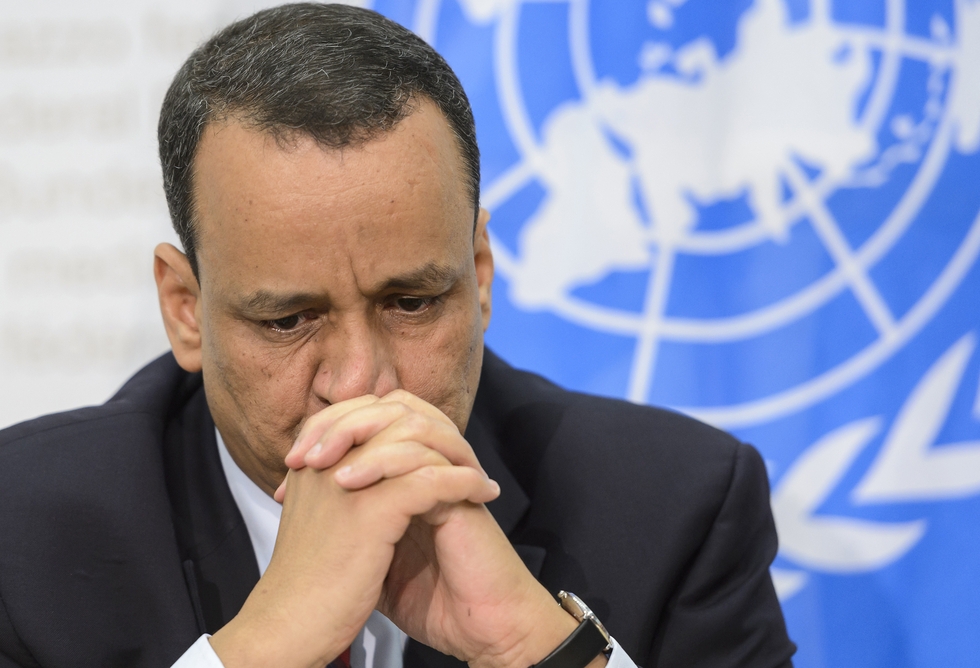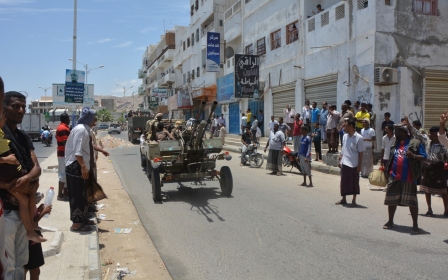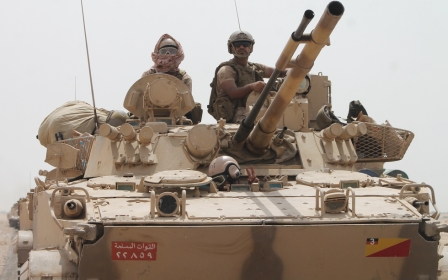Yemen foes hold 'productive' direct talks on key issues, UN says

Yemen's warring parties held "productive" face-to-face peace talks on Saturday on "key issues" in a bid to end the conflict in the impoverished Arab country, the UN envoy said.
"The talks today were positive and productive... It is an encouraging beginning," Ismail Ould Cheikh Ahmed told a news conference after the first direct talks since the delayed negotiations began on 21 April.
"Today, we heard the parties pledge total commitment to [UN Security Council] Resolution 2216 and related decisions, the Gulf initiative and results of Yemeni national dialogue as the basis for a peaceful solution," he said.
Saturday's talks came after the government and rebel delegations each submitted a framework for a political and security solution to end the 13-month war.
Ahmed said that despite the progress made "we still have obstacles and ideas are still far a part".
Most of the meetings in talks have so far been confined to encounters between rival delegations and Ahmed.
More than 6,800 people have been killed and about 2.8 million displaced in Yemen since a Saudi-led coalition began operations in March 2015 against Iran-backed Houthi rebels, who seized swathes of territory including the capital Sanaa.
Key issues include the withdrawal of armed groups, a handover of heavy weapons, the resumption of a political transition and the release of prisoners.
The government delegation said their proposal is based on implementing Resolution 2216, which states that the rebels must withdraw from seized territories and disarm before talks can progress.
The rebel delegation representing the Shia Houthis and forces loyal to former President Ali Abdullah Saleh said that their proposals include "forming a consensus authority that would oversee [political] transition".
The rebel proposals also call for the lifting of the blockade imposed by the Saudi-led military coalition on Yemen.
Ahmed said although there has been an improvement in firming up the ceasefire that went into effect on 11 April, some "grave violations" remain, especially in the besieged city of Taez.
The UN envoy also said that the Saudi-led Arab coalition has stopped air sorties in the past four to five days.
The UN Security Council on Monday stressed the importance of agreeing on a "roadmap" to implement security measures including the withdrawal of heavy weapons from Yemeni towns.
New MEE newsletter: Jerusalem Dispatch
Sign up to get the latest insights and analysis on Israel-Palestine, alongside Turkey Unpacked and other MEE newsletters
Middle East Eye delivers independent and unrivalled coverage and analysis of the Middle East, North Africa and beyond. To learn more about republishing this content and the associated fees, please fill out this form. More about MEE can be found here.




